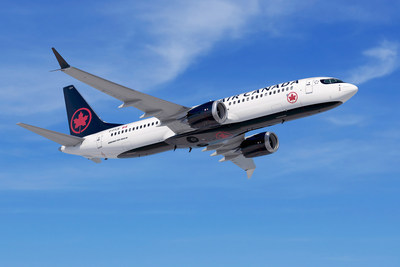Three unions representing thousands of airline workers are calling for C$7 billion ($5.3 billion) in government aid to prevent “long-lasting damage” to the aviation sector from the pandemic.
Government measures to curb Covid-19 have choked off most air travel, including a requirement that anyone entering the country isolate for 14 days. Through July, the recovery in Canadian air travel was much slower than in the U.S.

Funding should be under the form of a 10-year, 1% loan, instead of a grant, Unifor National President Jerry Dias saidat a press conference in Toronto.
The National Airlines Council of Canada, an association representing the country’s largest carriers including Air Canada, Onex Corp.’s WestJet Airlines and Transat AT Inc., support the plan.
“Countries around the world have brought forth sectoral support for their aviation sectors, precisely because of the critical role aviation must play in the economic recovery,” Mike McNaney, the council’s chief executive officer, said in a separate statement. “We support today’s call by Canada’s major aviation unions.”
Read more: American, United to Lay Off 32,000 as U.S. Aid Talks Drag On
ACPA Chief Executive Officer Robert Giguere criticized the federal government at the press conference, saying they failed to deliver industry support and left Canadian workers, employers and travelers with continued uncertainty. “Make no mistake — decimating this industry will impede the recovery for Canadians tomorrow and beyond,” Giguere said. Other countries including Germany and Singapore have given airlines billions in financial relief, he said.
“As outlined in the Speech from the Throne, our government is actively working to put forward solutions that will provide the air sector with the support it needs,” Canadian Transport Minister Marc Garneau said. “Any additional measures relating to air travel will be announced in due course.”
Air Canada said it’s in the process of finalizing an initial order of 25,000 Covid-19 rapid testing kits, which it hopes will allow the government to relax current restrictions. The border between the U.S. and Canada has been closed to most non-essential travel since mid-March.
(Updated with statement from transport ministry in penultimate paragraph)
©2020 Bloomberg L.P.










